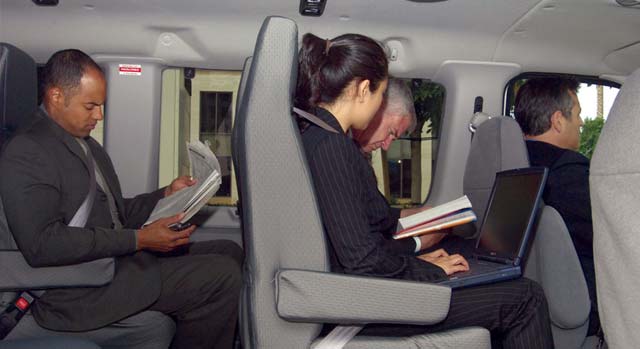UPDATED:
The new tax extenders law enacted in 2014 – the Tax Increase Prevention Act (TIPA) – preserved a key tax break for commuters. Under TIPA, a higher tax-free monthly allowance for mass transit passes and vanpooling was approved for 2014, retroactive to the beginning of the year. Without this tax law change, some of your clients may have rudely shocked when they filed their 2014 returns.
But the reprieve is only temporary. Because the laundry list of extenders in TIPA expired again on December 31, 2014, the tax break for transportation benefits has officially been reduced for 2015. Barring any further legislation, commuters face the same “tax hike” that was previously scheduled in 2014.
Let’s back up a little. Under current law, there are three basic tax-free fringe benefits for employees who commute back and forth from work.
- Mass transit passes: Employers may encourage their workers to use mass transit by providing them with tax-free monthly passes. This can be especially beneficial to taxpayers who have to commute to or within cities where parking is difficult and/or expensive.
- Vanpooling benefits: To qualify for the tax break for traveling in a “commuter highway vehicle” provided by an employer, the vehicle must seat at least six adults (not counting the driver) and at least 80 percent of the mileage must be attributable to transporting the employees. In addition, at least half of the seating capacity (not counting the driver) must be occupied during these trips.
- Parking fees: An employer may offer parking spaces to employees on or near its business premises or at or near a location from where the employee commutes to work via mass transit, carpooling or vanpooling. Note that this tax break doesn’t include parking spaces at or near an employee’s home.
Prior to TIPA, the maximum tax-free allowance for parking fees in 2014 was set at $250 a month, but the maximum tax-free benefit for mass transit and van-pooling had dropped to $130 per month. The new law restores the higher monthly threshold for mass transit passes and vanpooling so they’re on the same level as parking fees. However, now that this tax break has expired, the same scenario exists in 2015: The monthly tax-free benefit for mass transit passes and vanpooling is practically cut in half to $130 per month.
Under similar circumstances in 2013, after the American Taxpayer Relief Act (ATRA) had retroactively restored a higher allowance for mass transit passes and vanpooling benefits, the IRS issued definitive guidance to employers. Notice 2013-8 provided transitional rules for implementing the higher allowance for the prior tax year. Notably, it established procedures for making adjustments on Form Form 941, Employer’s Quarterly Federal Tax Return, for the fourth quarter of the year. However, at least until this point, the IRS has been silent on the issue relating to TIPA.
The IRS has just issued new payroll guidance to employers pertaining to the late increase in tax-free benefits for 2014 (Notice 2015-2, 1/8/15). In the new Notice, it explains how employers can correct FICA tax overpayments and report the proper amount of income and tax on Forms 941 (Employer’s Quarterly Federal Tax Return) and W-2 (Wage and Tax Statement). The procedures are similar to ones established by the IRS in 2013 when another retroactive increase in commuting benefits was enacted. This guidance is especially timely for Fourth Quarter filings of Forms 941 and W-2 that are due on February 2, 2015.
Get the word out about these latest tax law changes to your business clients. Stay on top of any developments that will require prompt action.
Thanks for reading CPA Practice Advisor!
Subscribe Already registered? Log In
Need more information? Read the FAQs




